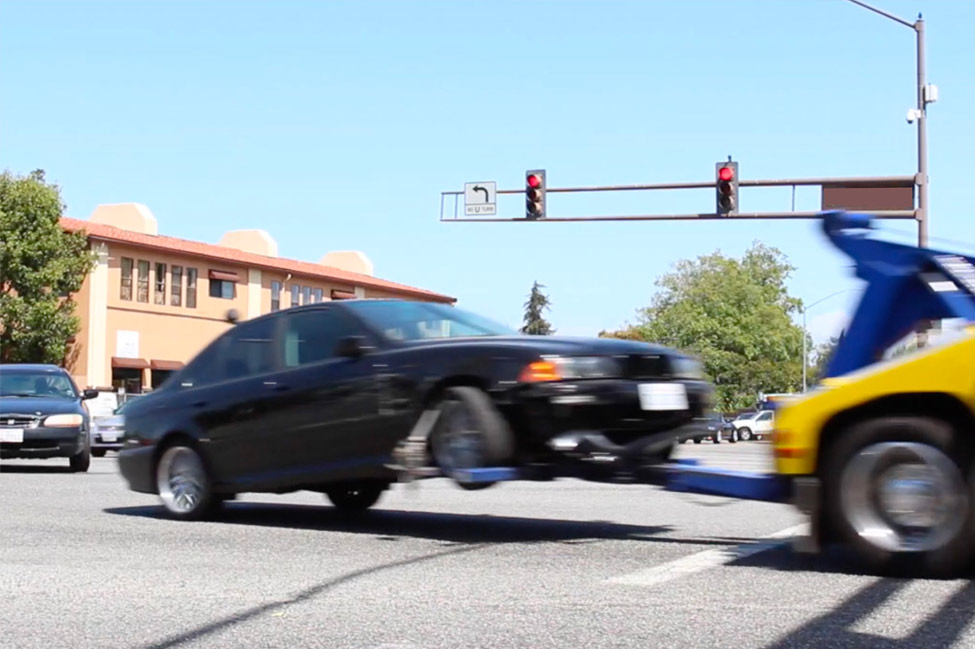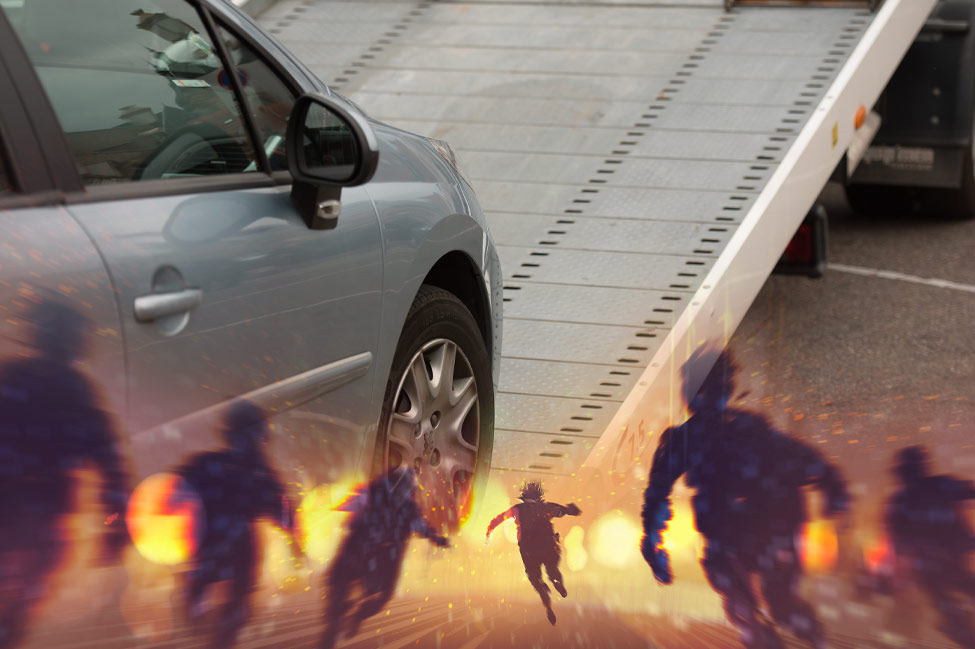Jason is a tower from the Midwest and he’s fed up.
He sent me a letter today complaining about a particular motor club’s rates and how they determine what constitutes a recovery and what doesn’t. He says that unless a car is on its top or its side, motor club XYZ doesn’t consider it a recovery. His contention is that due to special circumstances—the level of difficulty, and the risk of damage associated with winching one from a ditch—whether it’s on its wheels or top, it should be considered recovery. And therefore should command much more than the $29 pittance this particular motor club is willing to pay. His letter asked for help and a clarification of terms but as I delved deeper into his words it seemed that, rather than the temporary Band-Aid that an increase of a few dollars would provide, what he really wanted was a revolution.
As eloquent and passionate as I’ve read, his words detailed his belief in the corrosive and systematic exploitation that this particular “Motor-Club Monopoly” and others like it in the industry, use to keep a stranglehold on us.
Intrigued, I started to write back but, since I frequently receive letters like his, I decided to address it here.
Dear Jason:
You are right, XYZ motor club does exploit towers, but so does every other motor club out there. They’re all profiting by commoditizing our services. While our trucks wear out and driver-attrition rates increase, they’re making millions. The irony is they’re selling memberships by convincing motorists they’d better sign up or be victimized by towers, while they’re ones doing the victimizing. They string us along with unsustainable rates, knowing that if we decide to pull the plug and walk away there’s always some newbie ready to fill in the gaps.
And why not? The newbies don’t know any better. They see it as an opportunity to get their name out there. They believe being associated with XYZ motor club gives their business a boost. It’s like they’ve made it to the big leagues. Of course you and I know it’s the fast-lane to the bottom.
Just like you, I’m interested in breaking the chokehold monopoly that the motor clubs have on our industry. But it’s a huge uphill battle.
Motorists like the fact that they can call an 800 number and receive “free towing”. Many fear paying, what they’ve purposely been led to believe are, inflated rates. While the truth is, if incentives to be on the roads were increased—there’d be more towers, and rates would even out with supply and demand. Of course, if that were to happen, the need for motor clubs would wane (an even greater incentive for motor clubs to keep rates low).
But as convincing as we can be, it’s peace of mind motorists are buying, they can’t be bothered with reason and facts. Emotion drives decision making…and motor clubs know it.
So is it over? Do we just give up the fight?
To fight an opponent on their territory is difficult. Complaining about rates is not the way to go.
But even if you win—If you do succeed in getting a slight rate increase, the cost will be passed-on to the clubs’ members. And with the aid of highly skilled propaganda ministers and million dollar ad campaigns, the clubs will easily convince their members that the increase is due to towers demanding more than they’re worth. But I doubt you’ll ever get that far. The motor clubs will argue, and rightly so, that “towers aren’t required to accept the rates we offer. It’s up to them to decide whether it’s in their best interest to be contractually obligated”.
A national boycott perhaps?
It’s very romantic and sounds great but how would one orchestrate such a thing? I can’t even get along with the other towers in my city. How about you? And even if we did succeed in getting a majority of the towers to go along, how do you think that would be perceived? Would the clouds open up and the sun shine through with the light of truth? Espousing the reality that towers have been given a bad rap all along? Or would traffic-strangled roadways provide media outlets nationwide, with fodder—rife for the evening news? Idle tow trucks and crash video, giving motorists another reason to hate us?
It does no good to fight against the motor clubs. Don’t even try.
Rather than attempting to eradicate them on the grounds of immorality and exploitation, we have two options. The first being; not working for them. Simple enough, just walk away. The second option is to do what towers do best, compete.
The problem with keeping a man weak is that if he learns to live like that, he can be dangerous. And once he’s found a way to use it to his advantage, and has designs on a reachable goal—watch out.
Let me ask you a question. When you want to gain business is it a wise practice to confront your competitor’s customer and complain that they’ve chosen the wrong company? No you will gain no customers that way. You gain customers by looking for gaps in the service that your competitors provide, and demonstrating how you can do it better.
So the solution to a desire for revolution is to find a way to deliver what motorists want—better, while allowing towers to make enough money to motivate them to continue.
Fairly simple formula right?
I’m not talking about a local solution for the individual tower, there’s no way he can compete on such a small scale. And I’m not talking about some online subscription database either. What I’m suggesting is something on a grander scale—we fight fire with fire.
While being mindful of all those who stand to gain from its existence, I’m suggesting that we (the towers) create a motor club solution of our own. Structure it so that participating towers are owners or shareholders—while avoiding all of the legal traps. And then package, position, and market our services to the motor clubs’ customers. (They’ve been doing it to us all this time.) Customers like Sprint, Toyota, GMC, Enterprise etc.
It’s not something that’s going to happen overnight, and it certainly won’t happen if those doing the administrating are solely in it for themselves. This must be a concentrated effort by a group of folks whose only motivation is the survival and advancement of the towing industry, not the size of their bank account.
What’s the worst thing that could happen? The clubs are given a wake-up call—a cold splash of water in the face. Maybe they’ll come out of their drunken stupor, rates will increase and conditions will change—Maybe not.







Leave A Comment